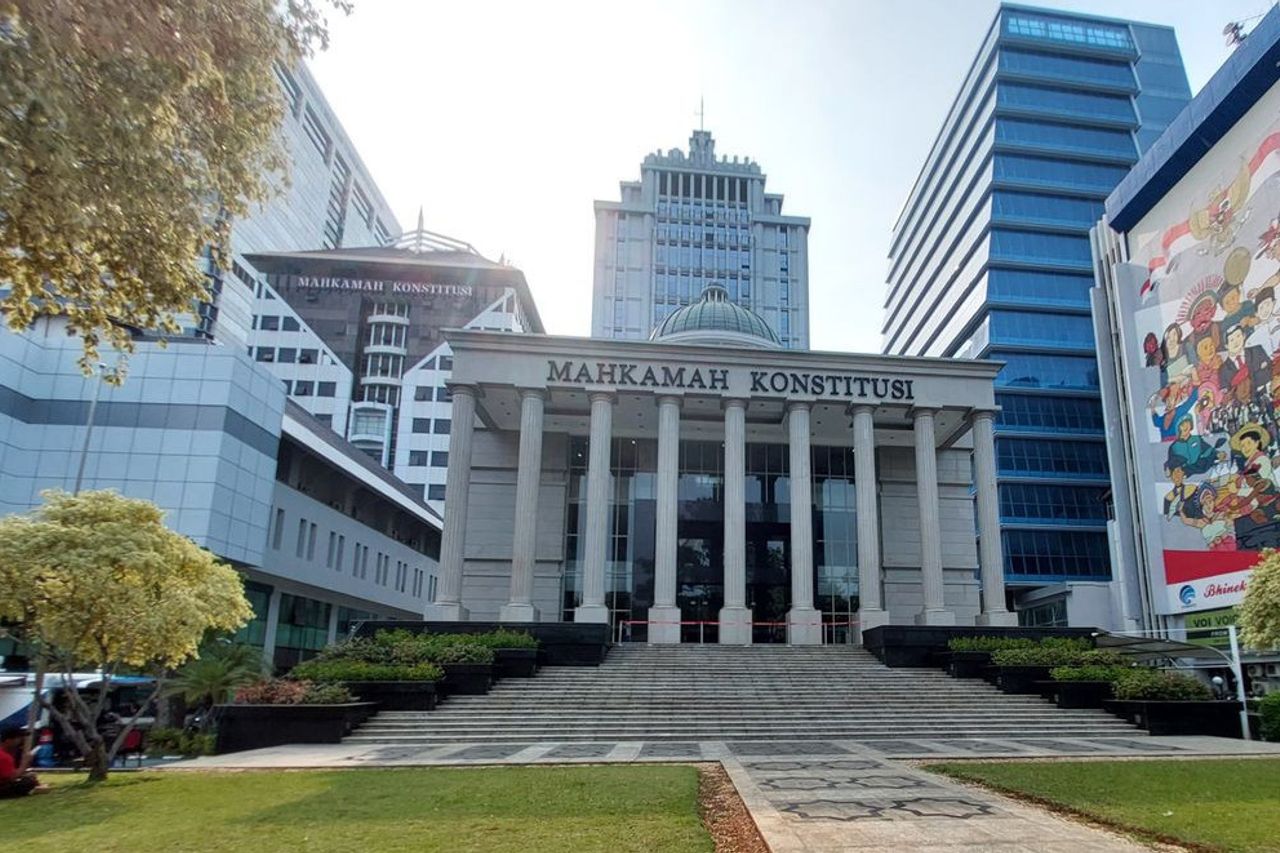The Constitutional Court Affirms That The KPK Has The Authority To Investigate Military Corruption To The Inkrah Decision

JAKARTA - The Constitutional Court confirmed that the Corruption Eradication Commission (KPK) has the authority to investigate corruption cases in the military sphere until a court decision has permanent legal force (inkrah), as long as the case begins for the first time by the KPK.
This affirmation is a new meaning of the Constitutional Court against Article 42 of Law Number 30 of 2002 concerning the KPK (UU 30/2002). The Constitutional Court granted part of the judicial review case Number 87/PUU-XXI/2023 which was requested by an advocate, Gugum Ridho Putra.
"The verdict, adjudicate, grant the petitioner's petition in part," said Chief Justice of the Constitutional Court Suhartoyo reading out the verdict in the verdict review hearing reported by ANTARA, Friday, November 29.
Article 42 of Law 30/2002 originally only reads, KPK has the authority to coordinate and control investigations, investigations, and prosecutions of corruption crimes carried out jointly by people subject to military courts and general justices.
The Constitutional Court decided that the article was conditionally contrary to the 1945 Constitution of the Republic of Indonesia so that an affirmation phrase was added at the end which reads, "As long as the case is meant, the law enforcement process has been handled from the start or started/discovered by the KPK."
In its legal considerations, the Court explained that the problem in corruption cases involving civilian and military elements or also known as connection corruption came from different interpretations between law enforcers and the formulation of Article 42 of Law 30/2002.
In fact, according to the Constitutional Court, if the provisions of the article are understood in a grammatic, teleological and systematic manner, there should be no doubt for law enforcers, the KPK has the authority to coordinate and control investigations, investigations and prosecutions of corruption cases from civilian and military elements.
The Court considered that the problem in connection corruption cases not only includes compliance with legal norms, but also includes law enforcement compliance while working in the law enforcement process.
"In this case, law enforcement against corruption should rule out culture of reluctant oruhewuh pakewuh, especially for things that have been strictly regulated in laws and regulations," said Constitutional Justice Arsul Sani.
Therefore, the Constitutional Court deems it necessary to confirm Article 42 of Law 30/2002.
According to the Constitutional Court, this article must be understood as a provision that gives the KPK the authority to conduct investigations, investigations, and prosecutions of corruption cases, as long as the case is found/started by the KPK.
This means that as long as the corruption crime is carried out jointly by civilian and military elements whose handling was carried out from the start or started by the KPK, the case will be handled by the KPK until a court decision has permanent legal force.
"On the other hand, for corruption cases committed by people who are subject to military courts that are found and started handling them by law enforcement agencies other than the KPK, there is no obligation for other legal institutions to delegate them to the KPK," Suhartoyo said reading out the Constitutional Court's legal considerations.
Thus Article 42 of Law 30/2002 becomes as complete as it reads, KPK has the authority to coordinate and control investigations, investigations, and prosecutions of corruption crimes carried out jointly by people who are subject to military courts and general justices, as long as the case is referred to, the law enforcement process is handled from the start or started/founded by the KPK.
With this affirmation, the Constitutional Court hopes that there will be no more doubts for the KPK to exercise its authority if it handles corruption cases carried out jointly by civilian and military elements, as long as the law enforcement process is handled from the start by the KPK.
